Maverick Life
Fashion and e-commerce: making it work for African designers
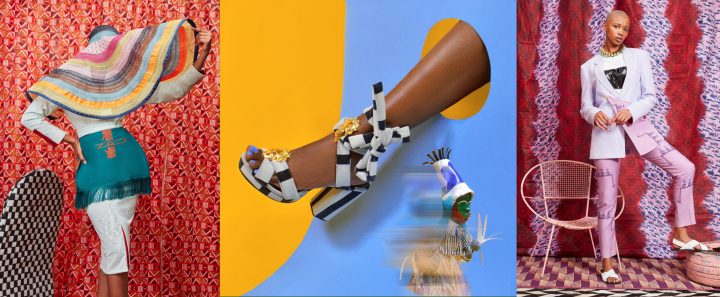
‘As an industry, we all have a responsibility and role to not only empower our designers but to change global perception and patterns of consumption when it comes to African fashion’, says Industrie Africa founder Nisha Kanabar.
Around the world, lockdowns have had a devastating effect on countries’ economies, including the fashion and luxury sectors, with retailers having to close brick-and-mortar stores amid concerns about the health of employees and clients, high rent and vanished customers.
In the US, many department stores and iconic fashion brands have filed for bankruptcy since the beginning of the pandemic. These include Neiman Marcus, J Crew, JC Penney and renowned suiting brand Brooks Brothers. Back home, luxury Italian brand Prada had to close its only South African store, located in Sandton which opened only five years earlier.
Given persistent worries associated with opening stores, physical retail businesses have become a heavy expense for some brands. In June, luxury couture label Valentino filed a lawsuit against the landlords of its boutique on 5th Avenue in New York, in an attempt to exit the lease nine years before the end of the original agreement. Valentino hasn’t been the only retailer to try this.
Meanwhile, e-commerce websites haven’t been exempt from effects of the pandemic; online luxury fashion retailer Yoox Net-a-Porter had to temporarily close its operations, while a March 2020 report from consultancy firm McKinsey, titled “Perspectives for North America’s fashion industry in a time of crisis”, noted: “The fulfilment of online orders risks disruption, whether through reduced staffing because of illness, physical distancing, site cleaning, or even distribution-centre closures under state decree.”
And yet, as has happened with previous recessions and economic crises, retailers are expected to recover. South African luxury brand MAXHOSA Africa by Laduma Ngxokolo is set to open another flagship store at the V&A Waterfront on Friday 24 July; some local and international brands have seen a spike in online sales, like British fashion brand Burberry, which stated in its annual report: “Online full price sales grew double digits in the quarter and we have continued to excite the customer through innovations like the immersive experiences…” And Statista anticipates that “in 2021, over 2.14 billion people worldwide are expected to buy goods and services online, up from 1.66 billion global digital buyers in 2016”.
In fact, e-commerce remains a great opportunity for small and bigger retailers as well as emerging designers who might not have the resources to open physical stores to reach customers, market their brand and sell their products.
AFI Designer Boutique, created by Dr Precious Moloi-Motsepe’s African Fashion International in 2019, was designed to help promote African luxury fashion designers to the global stage and sell their products via the platform.
More recently, online retail “destination” Industrie Africa, the brainchild of Tanzania-born Nisha Kanabar and which launched in 2018 as a sort of well-curated encyclopaedia of young, upcoming and established African fashion designers, has also leapt into e-commerce.
It’s about redefining the dialogue around mainstream fashion. There’s a world of elevated, conscious African design that just needs to be propelled forward in the right way: with a curated language, a global infrastructure and powerful storytelling tools.
“Industrie Africa initially launched as a platform that offered the fashion world an opportunity to access the African fashion industry in a new, and intuitive way,” says Kanabar.
“Through the platform and our community we listened and learned: Who were we speaking to? What problems did we want to solve? What did they, and our designer community, really desire from this experience?
“Connecting those dots, we saw an overwhelming demand for consumer product from our audience. Introducing a shoppable element into the conversation was an inevitable next step,” she explains.
The founder of the platform, who studied at the Parsons School of Design in New York, got her first glimpse of the work of upcoming fashion designers while working at VOGUE India and later Style.com in the Middle East (now VOGUE Arabia). She explains that working in emerging markets showed her “the raw dynamism of a burgeoning fashion industry; it helped me understand the importance of a 360-degree infrastructure in making all the moving parts work”.
She hopes Industrie Africa will not only be a retail website for customers around the world to discover talented fashion designers but also a place to celebrate the industry and its pioneers.
“It’s about redefining the dialogue around mainstream fashion. There’s a world of elevated, conscious African design that just needs to be propelled forward in the right way: with a curated language, a global infrastructure and powerful storytelling tools,” says Kanabar.
When we say ‘African luxury’ today it should be in the context of description rather than definition, as there is really nothing like an umbrella African luxury definition that covers the socio-cultural, historical, economic and social contexts of all the continent’s 55 countries.
“Our aesthetic is born from this idea of everyday artisanship; we are inspired by new-age tenets of luxury and a sense of elevated consciousness in creating as well as consuming. Africa is not a monolith, so there’s no single curatorial aesthetic; we are celebrating a multitude of identities, cultures and design nuances. It’s important to tell modern-day sartorial stories that are uniquely expressive, intimate, and accessible through the familiarity of a luxurious shopping experience.”
This statement is echoed by many industry experts locally and internationally – back in July 2019, Uche Pézard, the Paris-based founder and chief curator of Luxury Connect Africa and a speaker at the 2019 Condé Nast Luxury Conference in Cape Town, told Maverick Life: “I think when we say ‘African luxury’ today it should be in the context of description rather than definition, as there is really nothing like an umbrella African luxury definition that covers the socio-cultural, historical, economic and social contexts of all the continent’s 55 countries.”
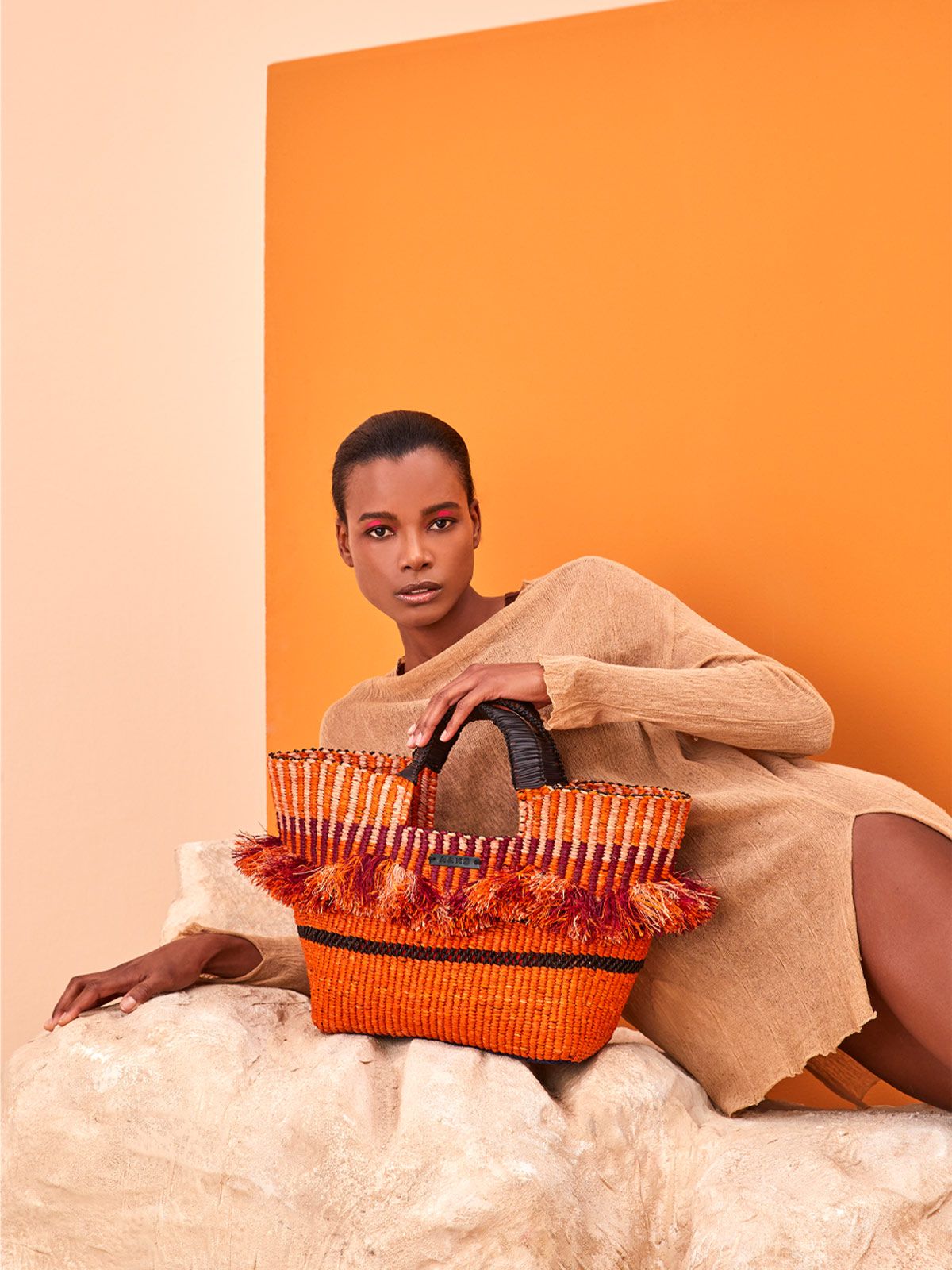
AAKS Bag; AAKS SS’20 Lookbook (Image courtesy of Industrie Africa)
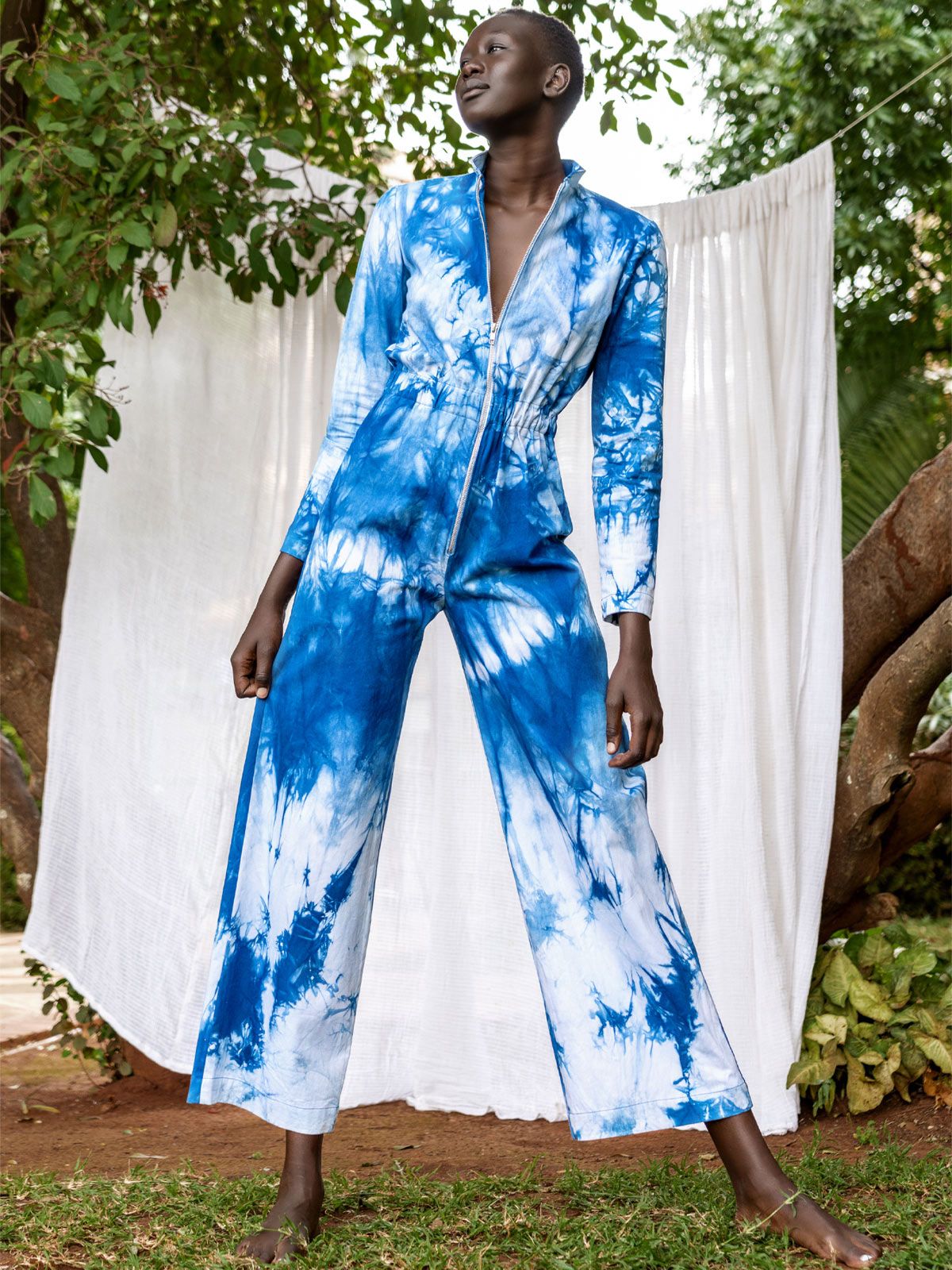
Kiko Romeo SS20 (Image courtesy of Industrie Africa)
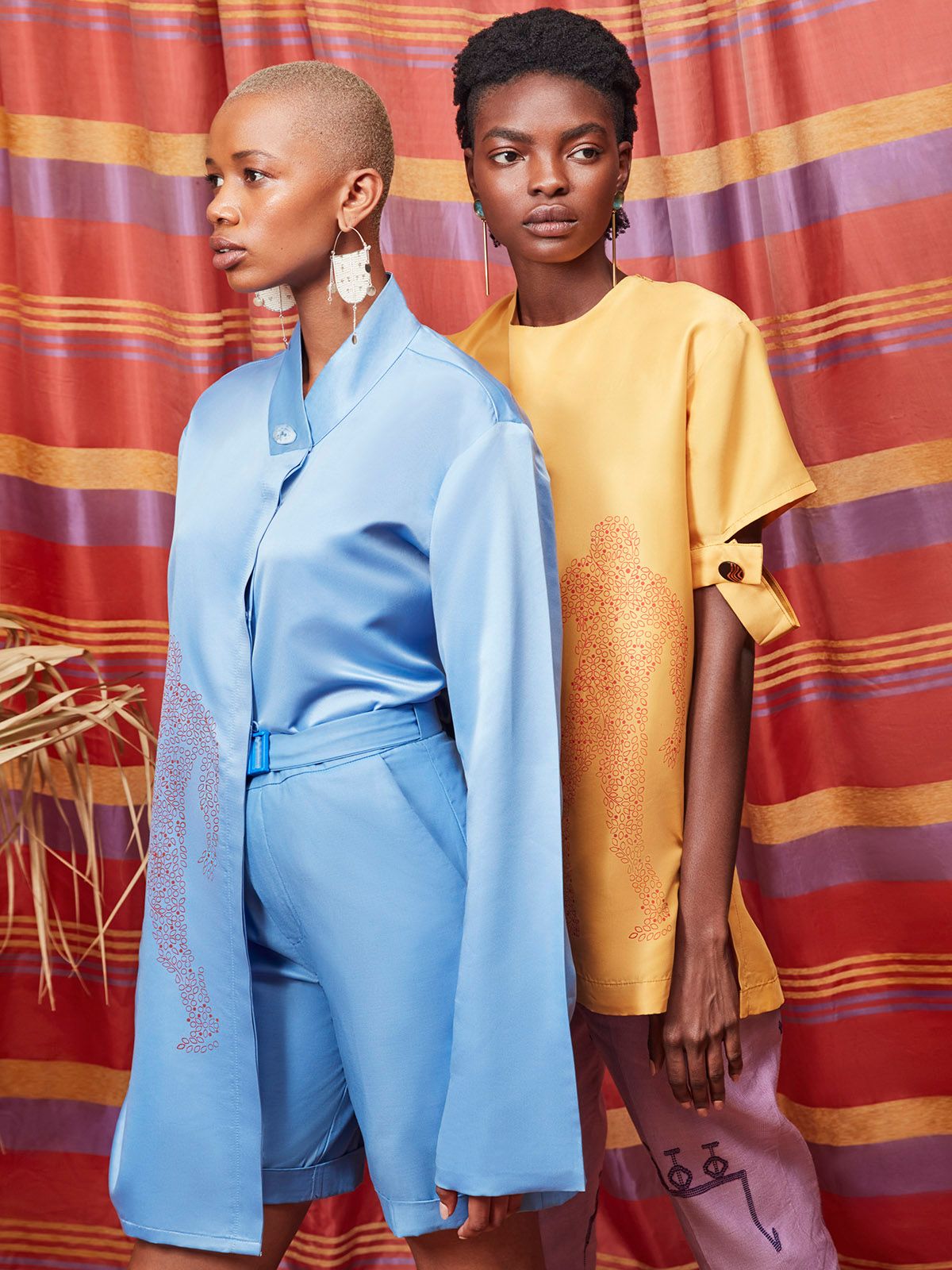
Orange Culture; Industrie Africa – Summer ’20 campaign; Photographer: Ulrich Knoblauch; assistant photographer: Hylton Boucher; stylist Louw Kotze; models: Summer Thompson, Dami Oni and Johanna Swartbooi (Image courtesy of Industrie Africa)
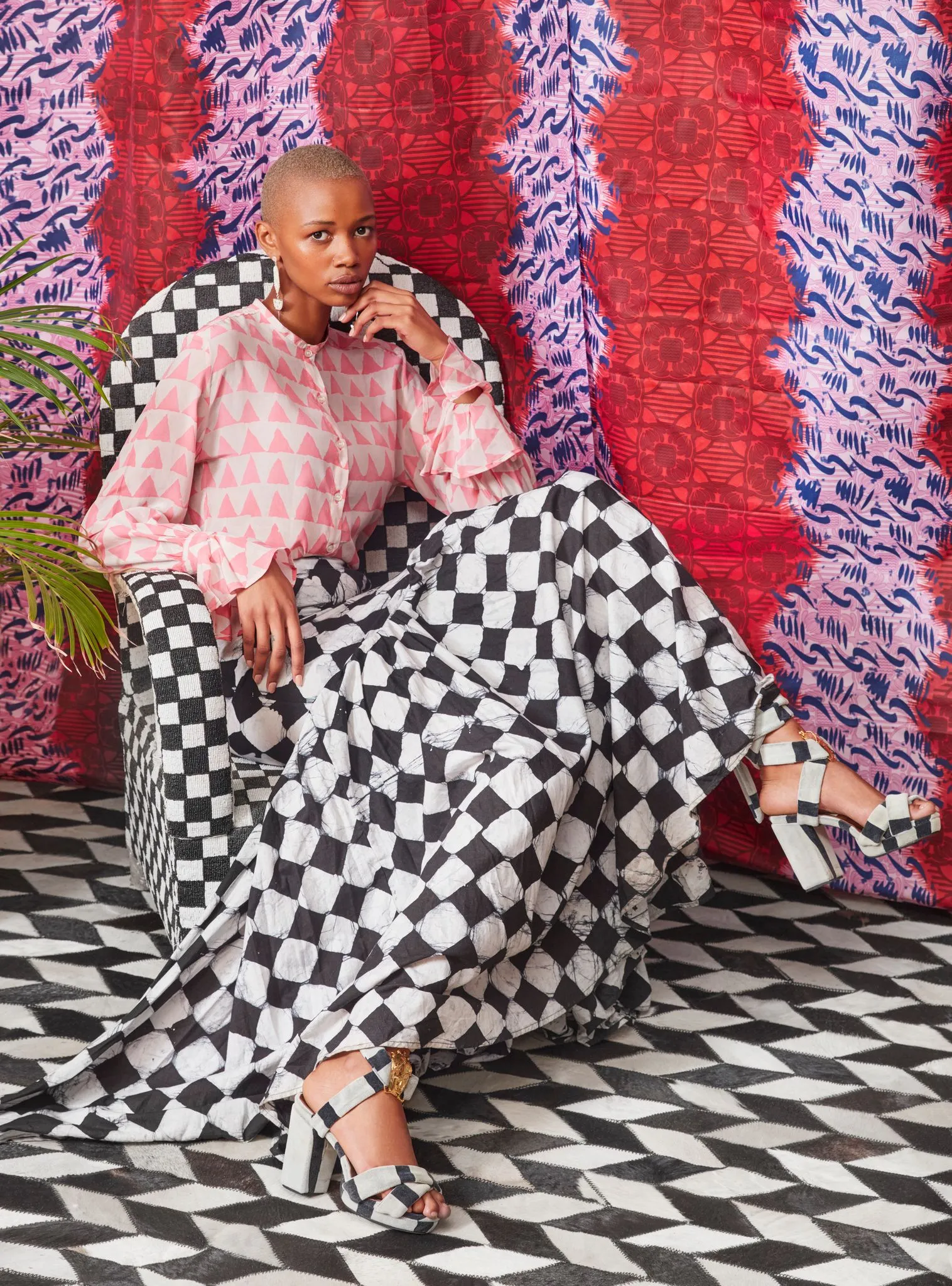
Industrie Africa – Summer ’20 campaign; Photographer: Ulrich Knoblauch; assistant photographer: Hylton Boucher; stylist Louw Kotze; models: Summer Thompson, Dami Oni and Johanna Swartbooi (Image courtesy of Industrie Africa)
Kenyan jewelry designer Ami Shah highlighted the importance of traditional craftsmanship and heritage as well: “It’s this country/region-specific narrative that I believe is compelling and should be protected but also should be created with a view to engaging with international audiences … whether it’s across the continent or beyond.”
Kanabar says building her platform didn’t come without challenges. “Scalable logistics is one tough nut to crack, as is the payment solution portion of it, which are certainly not tailored to Africa. And that doesn’t include the many layers of extra work that come from co-ordinating across a multitude of geographies!”
To keep the process as simple as possible, orders are shipped directly from the designers to customers using DHL Express to 220 countries around the world. It is a great opportunity for designers to reach customers they might not have access to otherwise and benefit from a platform that includes commerce services, editorial content shared with an ever-growing community, and a curated experience à la Net-a-Porter.
“The long-term vision is mammoth. There’s a long way to go in the industry, to make a sustainable difference. It starts with infrastructure and formalisation of the retail and media sector, which is something we’re passionate about contributing to.
“As an industry, we all have a responsibility and role to not only empower our designers but to change global perception and patterns of consumption when it comes to African fashion. That doesn’t happen with one voice. This industry needs a chorus — more platforms, more collaboration, more variety, not less,” says Kanabar. DM/ML















 Become an Insider
Become an Insider